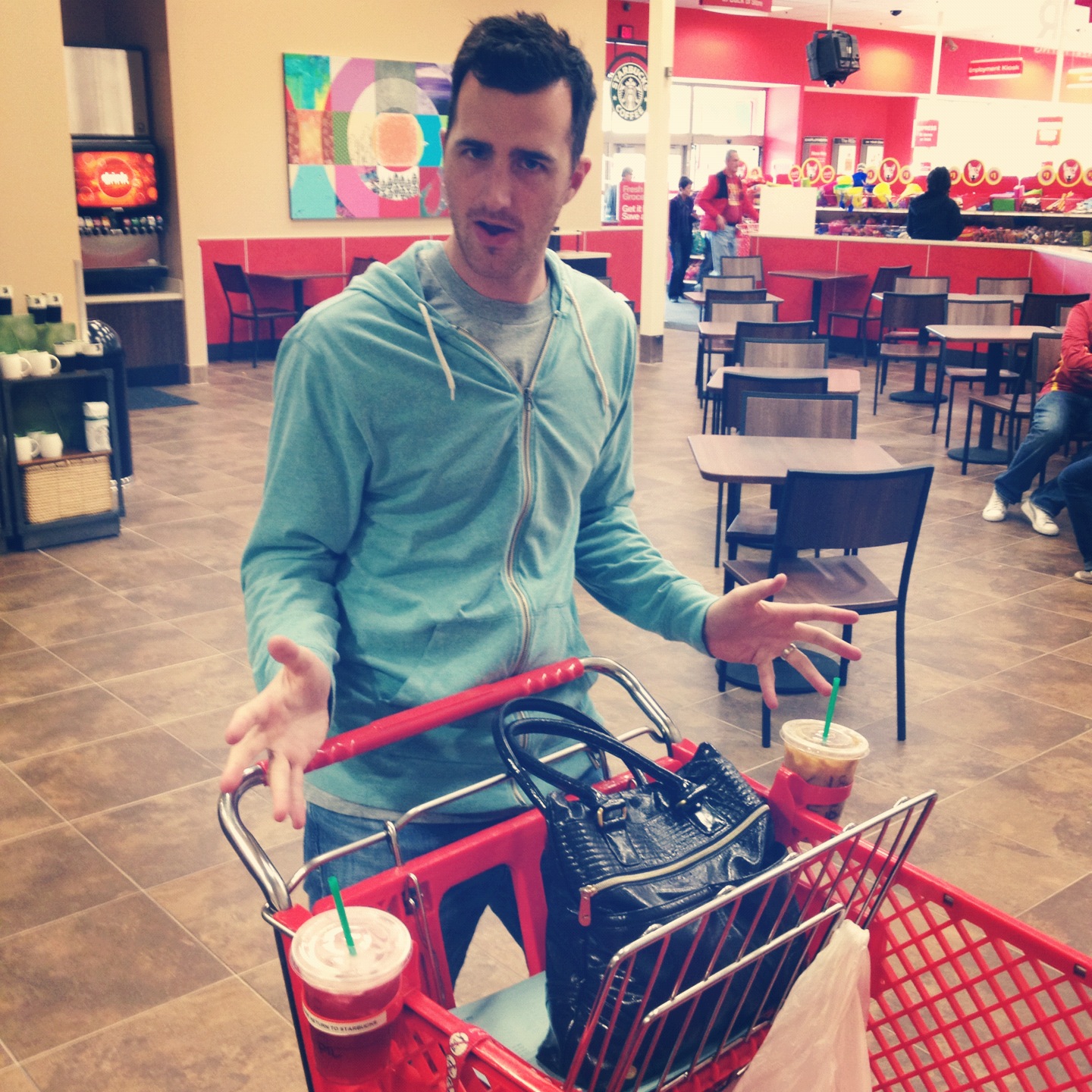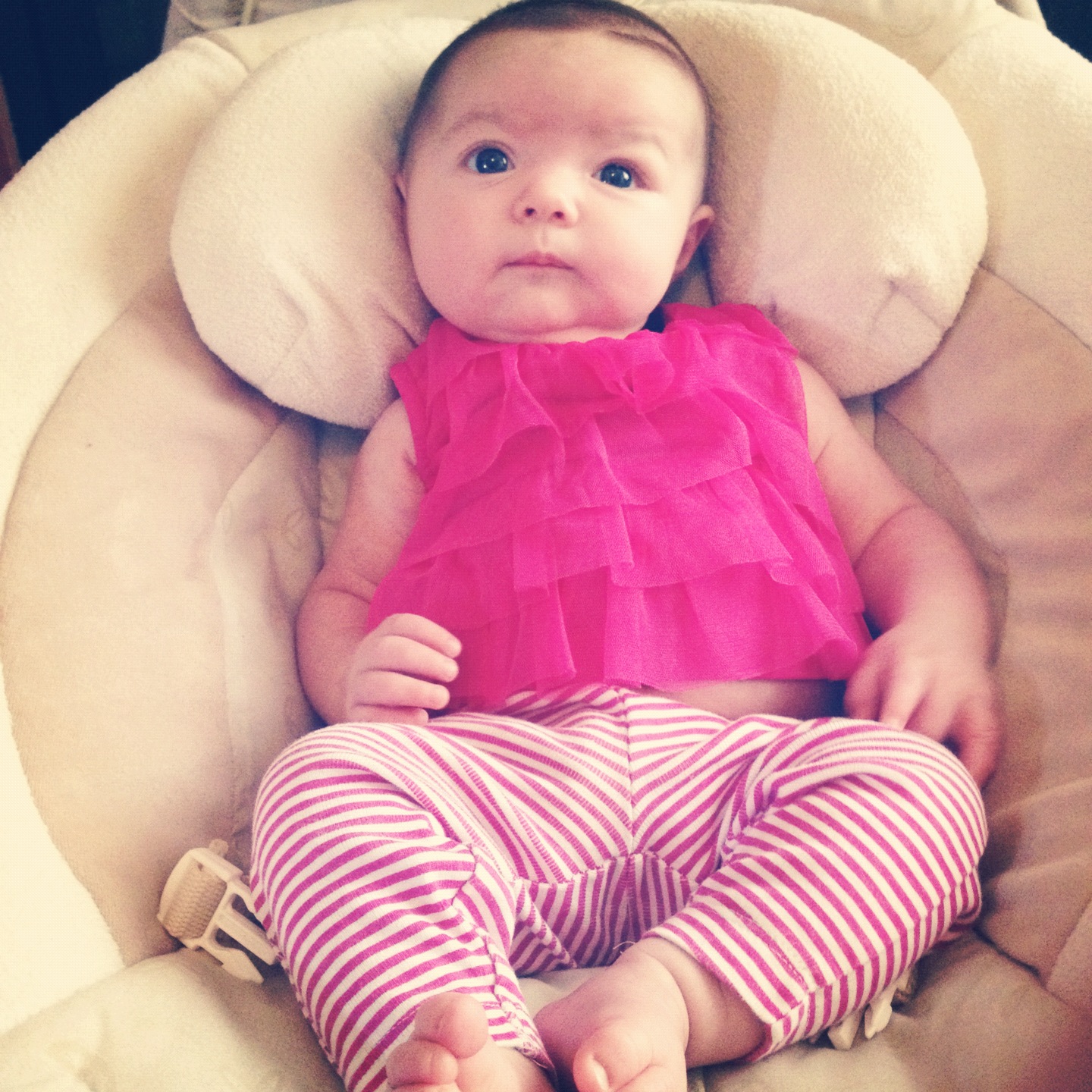How a Baby Changes Your Budget
When it comes to our budget, we like to have control. We take comfort in being able to set a budget at the beginning of the month and stick to it as the month goes by. Of course, there are minor hiccups here and there, but we've gotten pretty good at managing our budget over the past three years. So, when we found out we were pregnant, the budget planning began. We've written previously about how to prepare financially before you're expecting, and also about how to budget for the big items you'll need before baby arrives. But we so desperately wanted to know what our budget was going to look like after little Roo arrived.
This, however, turned out to be a more difficult task. As much as we researched and tried to plan, there are so many unknowns. Rooney was 7 weeks old before we felt that we had a decent idea of how our monthly budget was going to change.
Of course, the financial transition is huge, and we still don't quite understand how it will all shake out. My first piece of advice is to simply save money in a general baby fund. That way as bills come in during the transition period, you can have piece of mind knowing that you are prepared and have money stashed away.
We've made more trips to Target in the past eight weeks than we have in the past three years.
The lesson we learned while we tried to prepare our budget for Rooney is that having a baby is not only an emotional, physical and spiritual transition, it's also a big financial transition. Here are some thoughts on how to attack a budget when expecting a baby.
Budgeting for a Baby
- Formula: When we decided to give up breastfeeding, we had an initial influx in cost of formula. Our budget took a hit of about $25/week. This was a cost we didn't see coming, and we had already spent $224 on a breast pump and $30 on a pumping bra. Possibly money-saving options: Breastfeed, buy generic (Target brand), sign up for coupons.
- Diapers: We've taken advantage of a couple good deals on diapers when we see them. If you are stockpiling cash in a baby fund like we did, then it's easy to pounce on a good deal when they're available. Kelsey's cousin recommends that we never pay more than $0.14 per diaper. We change Rooney at least every feeding, which is eight times a day. I would say we go through about ten diapers a day. Let's do the math: 10 diapers x $.14 per diaper = $1.40 per day. That's less than $10/week.(We've heard good things about Amazon Mom, but have yet to take the plunge.)
- Wipes: Same calculation here, except sometimes we use up to four wipes per change depending on the severity of the treasures we find. But with diapers, wipes and formula, we are always looking for coupons and shopping around for the best deal.
- Clothes: Because Rooney is our first child, we had three baby showers and were blessed with an abundance of gifts, mostly clothes. This is great because we probably won't have to buy her clothes for the first year of her life (except for the awesome jeggings that Kelsey found for her this week). After that, we'll have to look at setting a budget to keep up with her growing body.
- Hospital bills: We loaded up our flexible spending account at the beginning of the year so we could foot the hospital bill with pre-tax dollars. It's also smart to consider the fact that you may have to stay in the hospital for extra days or have unforeseen procedures done (Rooney's frenectomy was one example). Being organized was essential to us feeling like we knew what was going on, and once Rooney arrived we were well prepared to handle the necessary paperwork to take care of all the not-so-fun stuff started surfacing. (Be sure to look closely at the bills you receive in the mail. Kelsey called to dispute three different doctor bills and avoided us paying $1,300+ in unnecessary fees that should have been covered by insurance.)
- Maternity leave: Our HR person at work was a huge help in preparing us for Kelsey's maternity leave. We planned it all out and knew exactly what Kelsey's paychecks were going to look like during her nine-and-a-half weeks off.
- Insurance: Every situation is different, but we knew that we were going to have to add Rooney to our health insurance. This comes right out of my paycheck, but it means that my take-home pay is decreased. This was a significant amount of money coming out every other week and I'm glad we knew it was coming rather than being surprised.
- Child care: We not only gathered information about day cares in our area, but also tried to get a grasp on the going rate in centers and in-homes to help get a firm grasp on how this would affect our budget. The cost might blow your socks off, so it's better to figure this out early in the pregnancy. If one of you is planning on staying home, you'll really want to run some mock scenarios to be sure the numbers work out for your budget.
- Estate plan/will: If you don't already have a will, it becomes even more important once you have offspring. It's on our list. We haven't done it yet and it's hanging over our heads. We hope to do this soon!! Just another expense to budget for.
- Birth announcements/thank yous: Kelsey takes great pride in corresponding with our loved ones, so putting together the perfect birth announcement was essential. So, we budgeted for it early.
Babies are such a blessing. That's why it's so important to think about the above items (and anything else that applies to your situation) before your baby arrives. When the time comes, you want to be able to focus on taking care of your wee-little one instead of sifting through paperwork and bills trying to figure out how to pay for the never-ending expenses.
What was the biggest financial surprise after having your first child?



